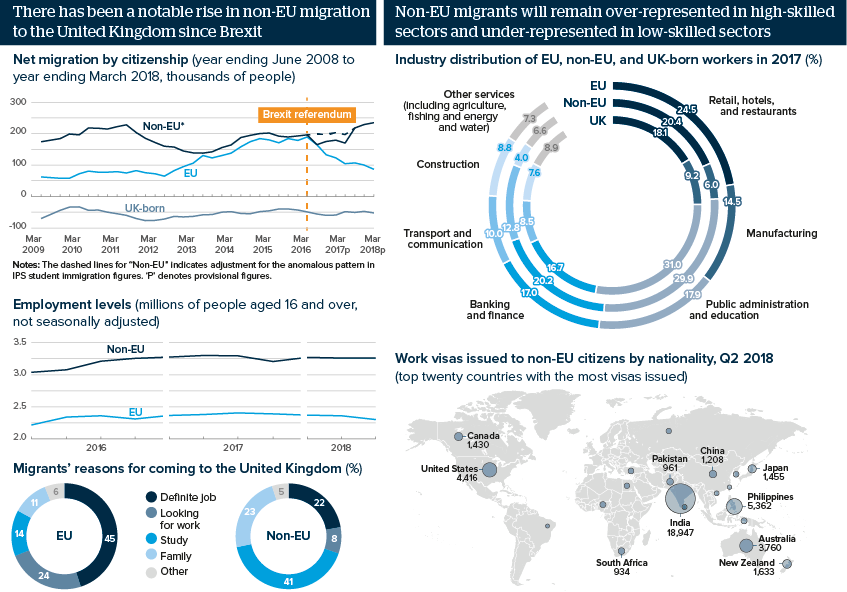Brexit’s focus on non-EU workers will divide business
‘Withdrawal agreement’ priority for non-EU workers will ensure immigration debate persists
Source: Office of National Statistics, Home Office
Outlook
Under the terms of the Brexit ‘Withdrawal Agreement’, the United Kingdom will not follow EU rules on the free movement of people once the transition period expires, which could be as early as December 2020. Prime Minister Theresa May said yesterday that the United Kingdom will prioritise the provision of work visas after Brexit based on skills rather than country of origin, largely appealing to non-EU migrants who are mostly represented in high-skilled professions.
Brexit’s apparent appeal to high-skilled over low-skilled workers will be one of May’s key selling points to business leaders and Brexiteers as she seeks parliamentary approval of the withdrawal agreement.
Impacts
- Businesses in sectors such as hospitality and construction will suffer as a result of the government’s post-Brexit immigration policy.
- Work agreements between the United Kingdom and non-EU countries will increase.
- There is unlikely to be a significant increase in non-EU workers until there is a clear Brexit agreement.
- There will be a greater concentration of low-skilled EU workers in other EU countries, such as Germany, France and Ireland.
See also
- New UK immigration plans will favour non-EU migrants - Mar 5, 2020
- Brexit risks derailing record UK job market momentum - Apr 24, 2019
- Brexit will increase pressures in the UK labour market - Jul 16, 2018
- More graphic analysis
